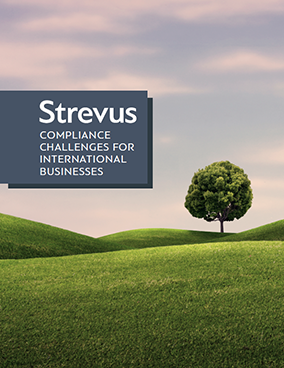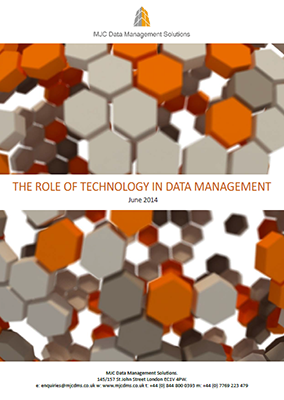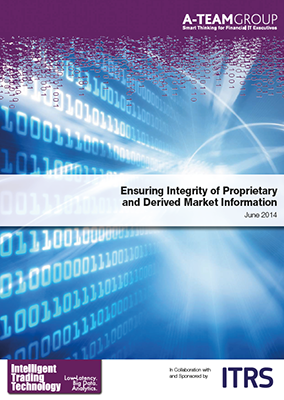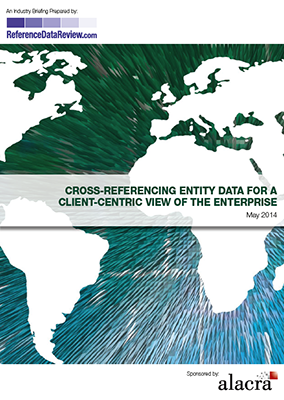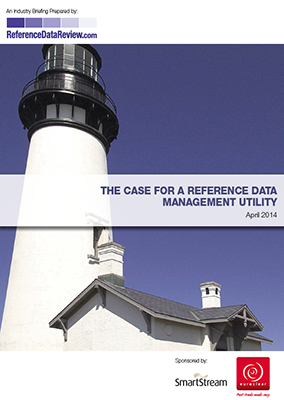A-Team Insight White Paper
Practical Considerations for Shifting to a Shared-Services Model for Reference Data Management
After years of discussion and little action, are we now seeing a shift in attitudes and a gain in traction for the idea of a shared services model for reference data management? A-Team Group surveyed a dozen market practitioners at financial institutions to understand the benefits and concerns and realities of shared services for data...
Uncover the Biggest Compliance Challenges for International Businesses
When an international business has to satisfy compliance across the globe, it must pay careful attention to both the rules and the cultures in which it is operating. The financial crisis has increased regulatory scrutiny globally, with each country developing their own set of intense and sophisticated strategies and protocols for monitoring and policing economic...
Financial Markets Tune In To Wireless
Wireless network technologies offer firms with latency-sensitive trading strategies a significant speed advantage over fibre optic technologies. But to deliver a competitive edge in trading performance they must be carefully selected, deployed and operated. Download our White Paper today and learn: The benefits of latest generation microwave and millimetre wave wireless technologies that can reduce...
How to Create an Agile Trading System
High speed, low latency trading connectivity is no longer enough to differentiate you from your competitors – so how do you add value to your trading systems? How can you create a trading platform that is: Flexible enough to accommodate the transaction lifecycle? Powerful enough to deliver the analytics for better informed trading decisions? Fast...
IFRS & AIFMD – Managing the Pricing and Transparency Paradigm
The International Financial Reporting Standards (IFRS) and the Alternative Investment Fund Managers Directive (AIFMD) present the market with a broad and complex range of obligations. In many cases these are the first set of common obligations that will impact Fund Managers, Hedge Funds, Asset Managers, Fund Administrators & Custodians all at the same time! Going...
The Role of Technology in Data Management
Data managers are tackling the issues of managing and distributing accurate and timely data across their organisations with the assistance of highly automated technology solutions. While technology plays a leading role in data management, there are other issues to consider, including product selection, procurement, project management and ongoing business development. MJC Data Management Solutions suggests...
How to Ensure the Integrity of Your Contributions Data
Do you worry about the validity and integrity of the data you contribute either to benchmarks like Libor or indexes, or to markets like the exchange-like Swap Execution Facilities (SEFs)? Or about the quality of the data you are selling to clients? With a marketplace growing in complexity, and more and more rules coming from...
Are Your Data Management Ops Future Proofed for Regulations?
Short term approaches to each new regulation that comes along are relatively easy to fund. But for true success, a long-term approach should be considered now that will help future proof your organisation against further regulatory change. A-Team Group surveyed 15 Tier 1 buy- and sell-side institutions about their views on a utility – rather than...
Have you figured out a single view of customer data yet?
Are you feeling the pressure from regulators to sort out your entity data but are frustrated knowing that the promised LEI solution is far from ready? What can you do in the meantime? Some financial institutions are meeting the regulatory requirements by establishing a single client view by cross-referencing data sources to help them achieve their entity data management...
The Case for a Reference Data Management Utility
Money, time, accuracy and quality have all been casualties of the extensive duplication of effort that has characterised the management of reference data management in the financial industry for as long as anyone can remember. The issue has become all the more acute in recent years by the growing complexity of financial markets and the...


